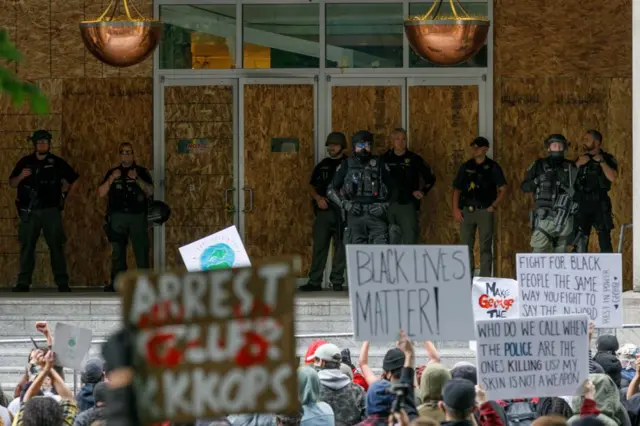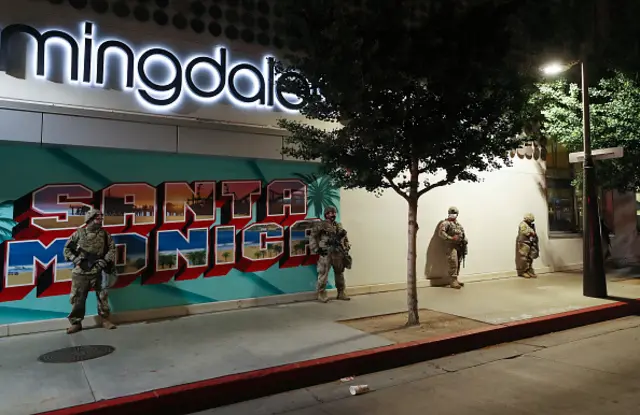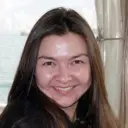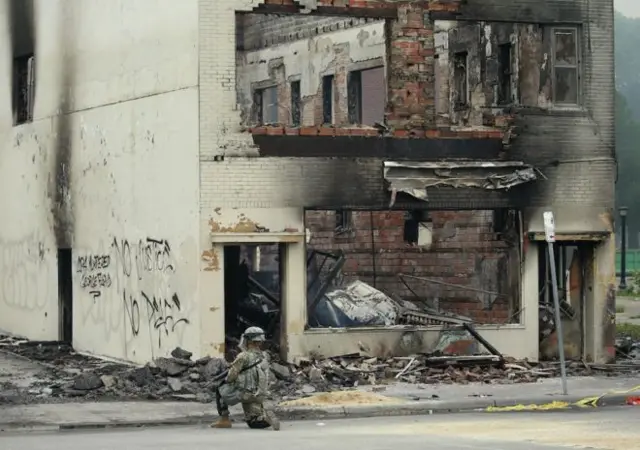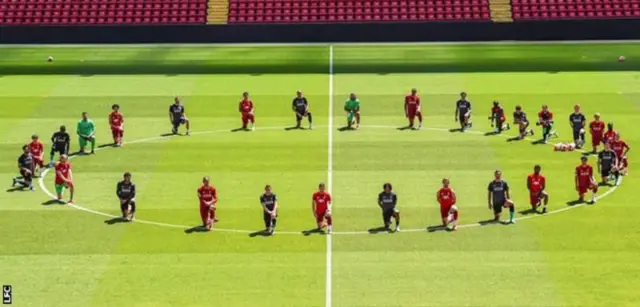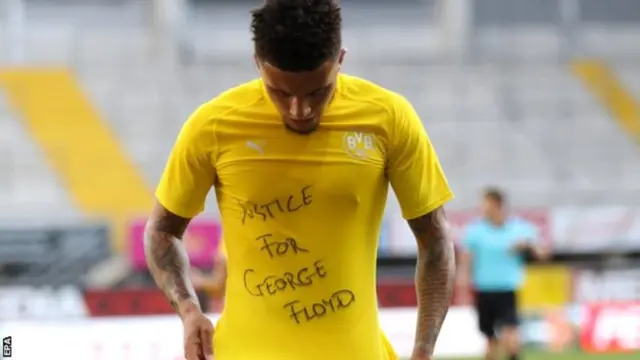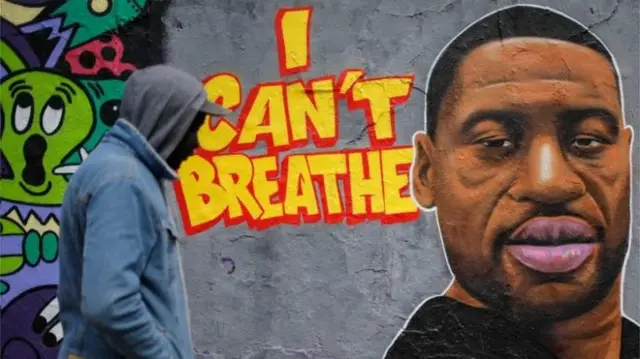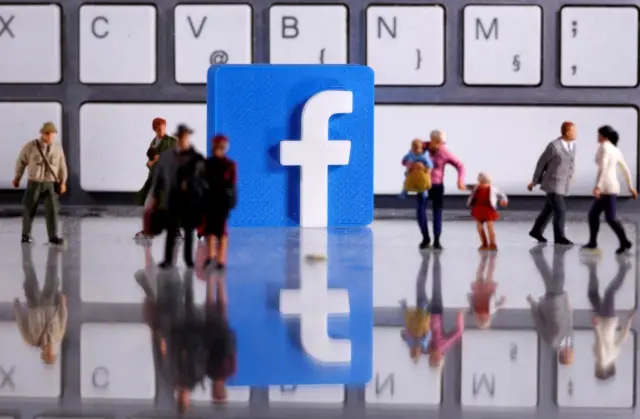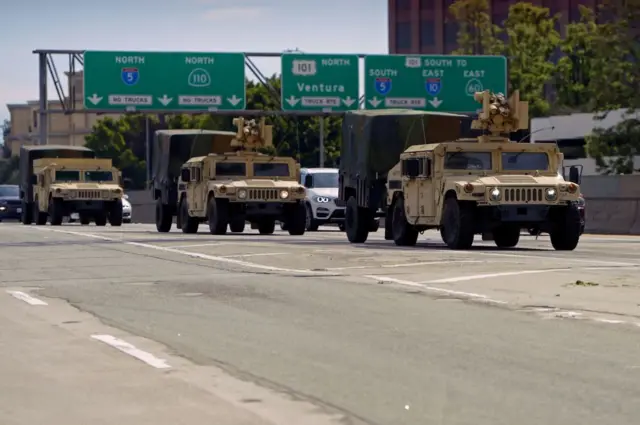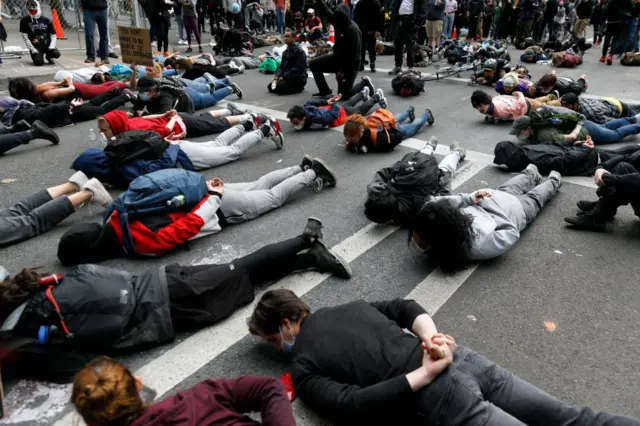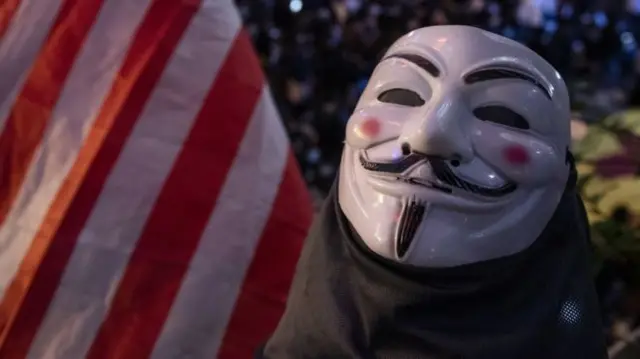Trump's 'far from clear' response to the protestspublished at 17:59 BST 1 June 2020
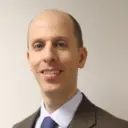 Anthony Zurcher
Anthony Zurcher
BBC North America reporter
On a normal night, the White House is a beacon in Washington, DC, as the executive mansion’s bright exterior is bathed in spotlights from dusk until dawn.
An hour before midnight on Sunday evening, however, the building went dark.
It was an unusual move made for security purposes as protesters, flouting a city-ordered curfew, clashed with police and Secret Service agents around the building.
The symbolism – of a president, and a presidency, under siege - was difficult to miss.It’s hardly the image Donald Trump wants to present at this moment.
The challenge for the president is his that message has been far from clear.
In an early Friday morning tweet, he appeared to suggest looters would be shot.
That afternoon, he told reporters that he understood the hurt and pain of the American people.
The following day, he tweeted a warning that any protestors who set foot on White House grounds would face “vicious dogs” and “ominous weapons”.
Then, in a quickly added introduction to a speech after the manned US rocket launch in Florida on Saturday afternoon, he pledged to be a “friend and ally to every American seeking justice and peace”.
According to a New York Times report, some of the president’s advisors are urging him to give a televised address to calm the nation. Others fear such a move could be a repeat of his error-strewn speech about the coronavirus in early March – and without a firm plan for how to move forward, the effort would be seen as hollow.
For now, the president appears intent hanging the blame for the violence on left-wing radicals and, by connection, Democratic politicians, including his presumptive November general election opponent, Joe Biden.
They, in turn, accuse him of dereliction of duty and rhetoric that has sown the seeds of unrest.
The president has lashed out at governors, calling for more aggressive police action; his Democratic opponents respond that this is a recipe for more violence.
Like a whirlwind of fire, the pace of the conflict – both on the ground in US cities and in the political debate – is spinning faster and hotter by the day.
